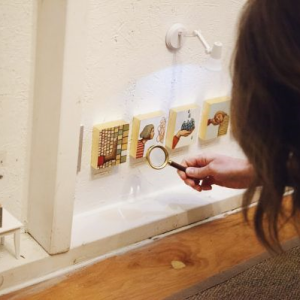With technological developments moving so fast, experts say we should embrace our soft, human skills, to keep our humanity. Journalist Jocelyn de Kwant delves into the rise soft skills.
Bob Dylan was already singing ‘The Times They Are A-Changin’ in the 1960s. During that time, a lot changed—often suddenly—and nowadays it feels like this is happening again. Technological and digital developments are moving so fast that the difference between now and the 1990s, or even the early 2000s, seems massive.
I sometimes try to remember what it was like before Google and it’s hard, even though it was only launched in 1998. How did I do my work? And how did we ever live without smartphones? How did we ever buy a house without an online real estate site? Times sure are changing a lot, and we’re never going back to how it was.
Only the beginning
What’s more, this is only the beginning. I sometimes make a concerted effort to understand what’s going on with new developments in artificial intelligence and other technological topics, and the only thing I definitely get is that a lot of jobs are going to disappear. It’s only logical of course: Chandlers and telephone operators aren’t around anymore either.
At the World Economic Forum in Davos, Switzerland, an annual event where CEOs, experts and politicians from all parts of the world come together to talk about the economy, this has been an important issue for a number of years. According to the latest estimate, in 2025 half of the work will be done by machines. For example, it has already been proven that computers are better at diagnosing certain illnesses than a doctor. But what does this mean for our lives? For our education system? What will we do if our jobs stop existing?
Disruptive innovations
‘Disruptive innovations’ is what futurist Christian Kromme calls it: Inventions that turn everything upside down. “Artificial intelligence and robots will soon be able to take a lot of work off your hands,” he says. “With the introduction of self-learning computers, this will proceed at an extremely fast pace; a lot is going to change in the next five to ten years.
So far, our education system has focused on teaching trades and professions. You study something for eight to ten years and then you do that work for the rest of your life. You can’t really do anything else though; it makes you inflexible. That was fine, because we needed the situation to be that way for a while to get where we are. But things are changing now.”
Go Digital, Stay Human
Kromme comes from the tech sector and wrote the international bestseller Humanification: Go Digital, Stay Human. He argues that we should embrace technology, but keep our humanity, because that’s where our strength lies. “The skills that we will be needing in the future are soft, human skills,” he says. “Skills that are more related to the heart than to the brain. Creativity is one of them, because technology can do things very effectively and correctly, but technology cannot invent new things. As the technology becomes smarter, we need to start asking smarter questions.”
- Read more about the rise of soft skills in issue 36.
Text Jocelyn de Kwant Photography Chandra Oh/Unsplash.com













